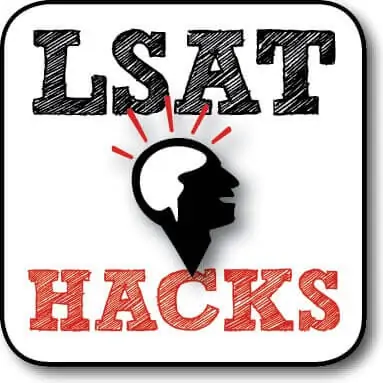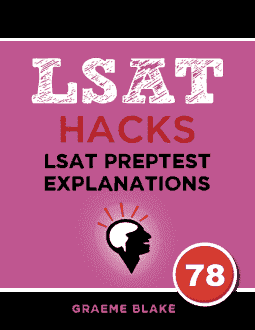Paragraph Summaries
Passage A
- Jury nullification is when a jury acquits a defendant even if the defendant broke the law. It’s rare, but it causes problems:
- We don’t really know when nullification is used, and so we can’t know when it’s used well and when it’s used badly.
- Juries don’t have access to some evidence, such as past convictions.
- Juries aren’t accountable the way legislators are.
- We should discuss criminal laws in public, rather than in jury rooms where wider society has no access to the debate.
Passage B
- Sometimes, police and prosecutors overstep their discretion and bring trivial cases to trial. The jury can then rightly refuse to convict.
- Juries can be seen to be helping the legislature. Legislatures must pass general laws by necessity. (Note: the implication is that laws are too general, but this can’t be helped.)
- Likewise, jury nullification can help show the legislature that there may be a problem with a given law.
- It’s rare for a jury to nullify inappropriately. All twelve jurors must unanimously nullify. This would be hard to do if inappropriate, given the differing backgrounds and viewpoints of jurors.
Analysis
These passages present two conflicting viewpoints about jury nullification. Nullification is when a jury acquits a guilty defendant.
For instance, in Canada, a prominent case of jury nullification involved Dr. Henry Morgentaler. He performed abortions at a time that those were illegal. The Canadian government repeatedly brought him to trial.
Morgentaler was located in Quebec, an area where support for legalization of abortion was very high. The government could not secure a conviction.
Morgentaler had clearly violated the law. Abortion was illegal. He had performed abortions. The government proved it conclusively. But since local juries viewed the law as wrong, the government couldn’t secure a conviction against Morgentaler.
This illustrates the benefits and drawbacks of jury nullification. I’m writing this explanation largely for a young American audience. Based on opinion polls, likely around half of readers support abortion legalization, and likely the other half disapprove. (I’m basing this on Gallup opinion polls of people describing themselves as “pro-choice” and “pro-life”).
If you belong to the former group, you likely approve of nullification in this instance. If you are in the latter group, you probably disapprove of nullification.
Note that in the case above, nullification was only possible because there was a large consensus in Quebec that abortion should be legal. Much larger than in America. So juries were arguing for something relatively uncontroversial, locally.
For an American equivalent, it’s helpful to imagine common exceptions to laws. For instance, consider entrapment. That’s where police tempt someone to commit a crime, and then arrest them. It’s generally illegal.
But if it were legal for police to entrap, then many juries would probably nullify cases involving entrapments. People across the political spectrum consider entrapment unfair, and so juries would refuse to convict.
Passage A – Juries are unaccountable and uninformed
The author of the first passage would say nullification of entrapment is a bad thing. Their arguments are that:
- We don’t know how juries use their power
- Juries might lack information
- Legislatures should debate laws, openly
The underlying theme is that debates about law should be open and informed, and that juries should stick to their role of acquitting or convicting based on the law.
Probably the hardest point to understand (and one of the best points) in passage A is in paragraph three. The author says juries don’t have access to past information.
Consider the following situation:
- The defendant has been convicted 10 times for shoplifting.
- In the past, they have been warned, fined, and finally send to jail multiple times.
- In the past, they were convicted of shoplifting items worth $500-$5000 on average.
- Currently, they are on trial for stealing a $1 candy bar. The prosecutor asks for two years in jail.
The jury only has access to the final point. So the prosecutor’s demand looks manifestly unfair. Juries aren’t allowed access to past criminal records, as this may bias them.
But in light of all the information, the prosecutor’s request isn’t necessarily too harsh. This is a case involving a serial shoplifter. It’s likely they have shoplifted other, more valuable items without being caught, and will continue to do so if acquitted.
Passage B – Juries provide oversight
The author of passage B likes jury nullification. So they completely disagree with the author of passage A. Their main points are as follows:
- Juries guard against prosecutors using their discretion poorly.
- Juries can help interpret general laws the way the legislature would want.
- Juries show the legislature which laws might need changing.
- Jury nullification is rare, and it’s hard to convince 12 jurors unless there’s very good reason.
The point about general laws (second paragraph) is probably the most difficult. What does the author mean?
I’m sure you can think of a situation where a law seemed stupid. Or it had a stupid consequence. Roughly speaking, that’s what the author referred to.
Usually, legislators don’t intentionally pass awful laws. But any law that’s broad and general is going to have some bad consequences. Legislators pass broad, general laws because:
- Some situations can’t be predicted, so the law has to be broad to catch them.
- Laws are compromises. Being too specific might mean legislators couldn’t agree on what law to pass.
- Sometimes, it is easy to evade overly specific laws
As an example, suppose there’s a law against growing marijuana (there is, in many places!). Obviously, what legislators mean to outlaw is selling marijuana and using as a drug. They don’t actually care about growth, except for its subsequent uses.
But if legislators only tried to outlaw sales, and use, then it would be much easier to get around the law. And since 99% of people growing marijuana would be doing it to sell it or use it, it’s more effective to just ban the plant entirely.
But now suppose a case came before the courts where an elderly person found a plant growing in their garden, and liked it, and planted it in a couple other spots. Suppose it was marijuana, and they truly had no idea it was a drug or illegal.
They would nonetheless be breaking the law. If they were prosecuted, and it was clear they hadn’t known what the plant was, a jury might nullify.
The author is saying this is probably a good corrective against broad laws, and that the legislature also wouldn’t want a conviction. The legislature really meant to stop sales and use, not elderly people accidentally growing plants.

Want a free Reading Comp lesson?
Get a free sample of the Reading Comprehension Mastery Seminar. Learn tips for solving RC questions


Leave a Reply